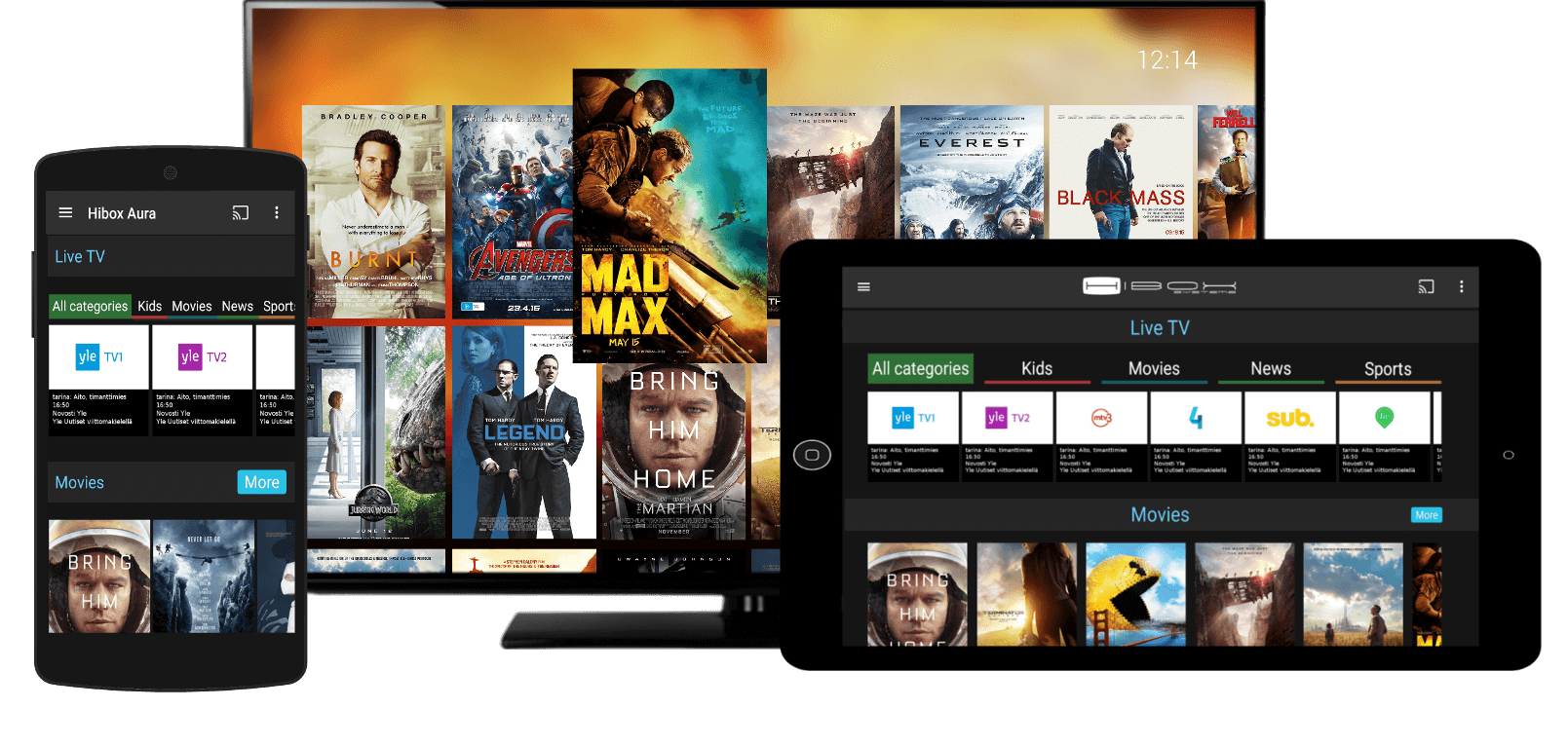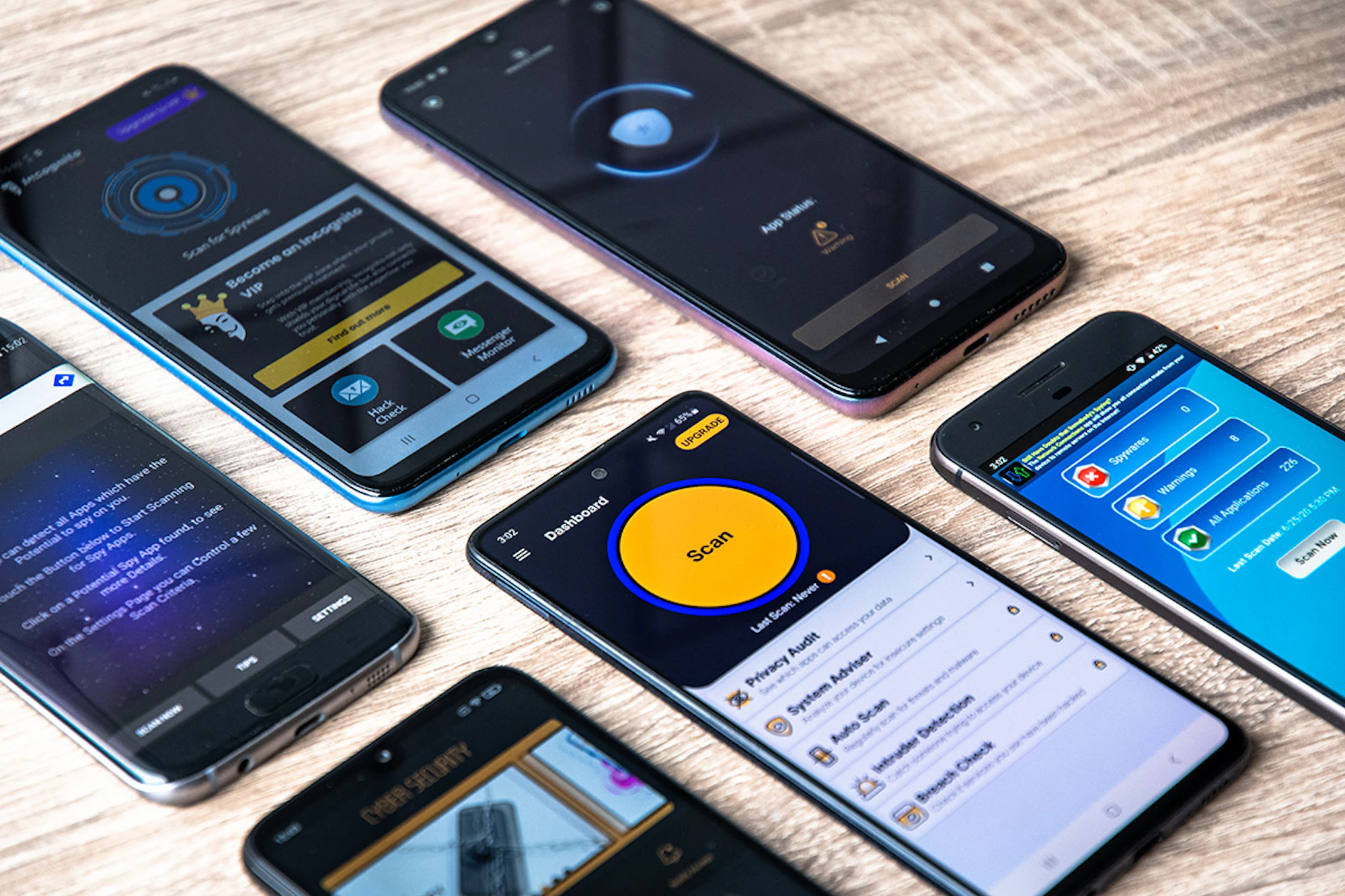Introduction to IPTV
Internet Protocol Television (IPTV) refers to the delivery of television content through internet protocol (IP) networks, enabling users to stream media over the internet rather than relying on traditional methods such as satellite or cable systems. This modern approach to television allows for a more versatile and flexible viewing experience, catering to the demands of today’s fast-paced lifestyles.
IPTV operates by transmitting video content as data packets over IP networks, with service providers encoding live television channels and on-demand video programming. The content is then delivered to viewers via internet connection, typically through broadband, which provides the necessary bandwidth and speed for uninterrupted streaming. This technology works in tandem with various devices, including smart TVs, set-top boxes, computers, tablets, and smartphones, making it accessible for a wide range of audiences.
The evolution of television consumption is marked by a notable shift in viewer preferences. Traditional cable systems, once the primary source of television content, have been gradually overshadowed by internet-based alternatives as consumers seek more convenient options. This transition is largely driven by the increasing penetration of high-speed internet and the growing popularity of mobile devices, which provide viewers with the capability to watch their favorite shows and films anytime and anywhere.
Additionally, the rise of streaming platforms has fundamentally changed how audiences engage with media. Users now anticipate not only having a plethora of choices but also the ability to control when and how they consume content. As a result, IPTV has emerged as a prominent solution in the realm of on-the-go entertainment, facilitating real-time access to live broadcasts, catch-up television, and a vast library of content available on demand.
The Convenience of Watching Anywhere
In today’s fast-paced world, the demand for convenience in entertainment has surged, making IPTV (Internet Protocol Television) an attractive option for those seeking flexibility. IPTV enables users to access their favorite shows, movies, and channels from virtually anywhere, provided they have an internet connection. This distinct feature caters to modern consumers who often find themselves on the move, whether during a commute, traveling for business, or simply balancing busy schedules.
One of the significant advantages of IPTV is its compatibility with a wide range of devices. Users can watch content on smartphones, tablets, laptops, or smart TVs, ensuring their preferred entertainment is always within reach. For instance, a traveler can catch up on their favorite series during a long flight or bus ride, irrespective of traditional broadcasting constraints. This flexibility significantly enhances the viewing experience, allowing individuals to tailor their entertainment consumption to fit their busy lifestyles perfectly.
Moreover, IPTV services often come with user-friendly applications, enabling seamless access to on-demand content. These applications typically provide personalized recommendations, ensuring viewers can quickly find what they wish to watch without navigating through cumbersome menus. Such an efficient experience is essential for individuals who are always on the go and may only have limited time to unwind.
For commuters, the ability to watch IPTV during transit has transformed the way they spend their time. Rather than being idle, they can turn their travel time into an opportunity to enjoy their favorite films, series, or live broadcasts. This newfound ability to watch anywhere not only contributes to enhanced satisfaction with media consumption but also supports a more engaged lifestyle. As people continue to embrace mobility, the convenience of IPTV becomes increasingly indispensable in their on-the-go entertainment repertoire.
The Variety of Content Available
One of the significant advantages of Internet Protocol Television (IPTV) is its extensive range of content, which caters to a broad audience with diverse tastes and preferences. Unlike traditional television services, IPTV provides not only live TV channels but also an array of on-demand movies, series, and exclusive shows that appeal to a variety of demographic segments.
For sports enthusiasts, IPTV stands out by delivering a comprehensive selection of live sporting events. From football and basketball to niche sports like cricket or rugby, viewers have access to numerous channels that offer real-time coverage, expert commentary, and interactive features. This enables fans to stay updated and engaged with their favorite teams and sports, regardless of their location.
News aficionados also greatly benefit from IPTV services, as they can access multiple news channels that provide 24/7 coverage of current events. Viewers can select from various networks with differing perspectives, making it easier to stay informed and gain insights from a broader range of sources. Live reporting and dedicated segments covering global and local news enhance the overall viewing experience, ensuring that users remain connected to the world around them.
Entertainment is another corner of the vast IPTV catalog. Subscribers can indulge in on-demand movies and series from various genres, whether they prefer action, romance, or documentary. Furthermore, many IPTV providers offer exclusive content, such as original series and films, which cannot be found on standard cable networks. This exclusivity helps cultivate a unique viewing environment that aligns with modern entertainment consumption habits.
In conclusion, the variety of content available through IPTV not only meets but exceeds the expectations of different viewers. With offerings that encompass sports, news, and entertainment, IPTV has established itself as the ultimate solution for anyone seeking diverse and engaging content on the go.
Affordability and Cost-Effectiveness
IPTV, or Internet Protocol Television, presents a compelling cost-effective alternative to traditional cable subscriptions. One of the primary benefits of IPTV is its diverse pricing models, which often lead to significant savings for consumers. Unlike traditional cable providers, who frequently bundle channels that may not be useful to the viewer, IPTV services enable subscribers to choose packages tailored to their specific content preferences. This flexibility not only lowers costs but also enhances the viewing experience.
Many IPTV services offer tiered subscription plans that can accommodate various budget levels. These plans range from basic offerings to comprehensive packages that include premium channels and on-demand content. As a result, users can opt for a more economical plan while still gaining access to a broader range of programming compared to conventional cable subscribers. Moreover, the absence of hidden fees common in traditional cable contracts adds to the overall affordability of IPTV options.
In addition to paid subscription models, consumers will find many free or low-cost IPTV options available, which contribute to the overall appeal of this technology. Numerous platforms provide free access to a variety of channels, allowing users to explore content without the financial commitment that cable often requires. Furthermore, these free services typically include ad-supported models, offering an inexpensive way for users to enjoy television, albeit with some interruptions.
Overall, the affordability and cost-effectiveness of IPTV not only allow users to cut down on their entertainment expenses but also grant them access to a wider array of viewing choices. As television consumption trends shift towards personalized content, embracing IPTV is an intelligent investment for those seeking quality and variety without the burden of excessive costs.
User-Friendly Interfaces and Features
In the evolving landscape of digital entertainment, IPTV platforms have emerged as a popular choice among viewers seeking a seamless viewing experience. A key aspect contributing to the growing success of these platforms is their user-friendly interfaces, which empower users to navigate content with ease. Traditional cable systems often come with complex menus and limited options; in contrast, IPTV embraces modern interface design that prioritizes usability and accessibility.
One of the standout features of IPTV services is the capability to create personalized playlists. This functionality allows users to curate their viewing experience by selecting their favorite programs and channels, making it easier to access content of interest without sifting through extensive libraries. By saving preferences, users can quickly locate their choices, thus enhancing convenience and providing a tailored entertainment experience.
Additionally, the integration of electronic program guides (EPGs) significantly improves content navigation. EPGs offer a comprehensive view of available programming, including schedules, descriptions, and ratings, which help users make informed decisions on what to watch. These guides facilitate smooth browsing, ensuring that no essential content is overlooked while managing what can often be a vast array of options.
IPTV platforms also incorporate various features that enrich user interaction, such as the ability to pause, rewind, or record live TV. This flexibility allows users to engage with content on their terms, ensuring they never miss a moment of their favorite shows. Whether it’s catching up on a missed episode or enjoying a thrilling sports moment, these tools enhance the overall viewing experience by combining convenience with enjoyment. In summary, the user-friendly interfaces and robust features of IPTV platforms collectively provide an unparalleled solution for on-the-go entertainment, catering to the diverse needs of today’s viewers.
Device Compatibility and Accessibility
One of the most compelling advantages of IPTV (Internet Protocol Television) is its remarkable device compatibility and accessibility. Users can enjoy IPTV services across a wide array of devices, making the entertainment experience versatile and user-friendly. Popular devices include smartphones, tablets, smart TVs, and dedicated streaming devices, which allow viewers to access their preferred content wherever they are.
Smartphones and tablets have become essential tools for consuming media on the go. With IPTV applications available on both iOS and Android platforms, users can easily install apps that provide access to live television and on-demand content. The portability of these devices means that entertainment is just a tap away, whether one is commuting, traveling, or simply enjoying downtime in a park.
Moreover, smart TVs have transformed traditional viewing experiences by integrating IPTV capabilities directly into the television set. This means that users can connect to the internet and stream high-definition content without the need for additional hardware. Many smart TVs come with pre-installed IPTV applications or allow users to download them, ensuring quick access to a variety of channels and programs.
In addition to smartphones and smart TVs, dedicated streaming devices, such as Roku, Amazon Fire Stick, and Apple TV, have gained immense popularity. These devices plug into HDMI ports and provide a hub for all your streaming needs, including accessing IPTV services. Their simple user interfaces and compatibility with various content providers make them an appealing choice for those wanting a unified entertainment experience.
The impressive range of compatible devices ensures that IPTV is accessible to a diverse audience. Users can switch between devices seamlessly, maintaining their viewing experience without interruption. This flexibility empowers individuals to stay connected to their favorite shows and channels, regardless of their location. Ultimately, the device compatibility and accessibility offered by IPTV services enhance the overall enjoyment of content consumption on the go.
Quality of Streaming and Connection Reliability
IPTV, or Internet Protocol Television, offers a compelling solution for on-the-go entertainment, particularly when it comes to streaming quality and connection reliability. One of the primary advantages of IPTV is its ability to deliver content in high-definition (HD) and even 4K resolution, ensuring that users experience superior visual clarity whether they are using a mobile device or a smart TV. The adoption of advanced compression technologies allows providers to transmit high-quality video while minimizing bandwidth usage, making it feasible to enjoy premium content without significant interruptions.
Along with resolution advantages, the performance of IPTV can be significantly enhanced with robust bandwidth requirements. Generally, a stable internet connection of at least 10 Mbps is recommended for HD content, while 25 Mbps or higher is preferable for 4K streaming. However, with advancements in both wired and wireless network technology, achieving these bandwidth levels becomes increasingly feasible. Modern wireless networks, such as 4G LTE and 5G, provide extensive coverage and high-speed connectivity, allowing users to seamlessly stream their favorite shows and movies while traveling or commuting.
Moreover, the reliability of IPTV connections has improved significantly in response to the rising demand for high-quality streaming. Streaming protocols and content delivery networks are meticulously designed to reduce buffering times and enhance user experiences. Many IPTV services utilize adaptive streaming technology, which adapts the video quality in real-time based on the user’s internet speed. This ensures that interruptions are minimal, allowing on-the-go users to enjoy their content without disheartening pauses. In today’s digital landscape, IPTV stands out as a viable option for consistent, high-quality entertainment regardless of location, assuring viewers they can rely on this solution for their entertainment needs.
Offline Viewing Options
In today’s fast-paced world, the need for flexibility in entertainment consumption has never been more pronounced. IPTV, or Internet Protocol Television, offers an innovative solution by allowing users to download content for offline viewing. This feature serves as a significant advantage, enabling viewers to enjoy their favorite shows and movies without relying on a stable internet connection, which can be particularly beneficial when traveling to areas with limited network access.
The ability to download shows or films from IPTV platforms provides convenience that traditional television cannot offer. Many IPTV services allow subscribers to save content directly to their devices, such as smartphones, tablets, or laptops. This feature is particularly useful for road trips, flights, or camping trips, as it ensures uninterrupted entertainment without the necessity of constant internet access. Users can prepare in advance, selecting their desired programs or movies to download before hitting the road, guaranteeing that a reliable source of entertainment is always available.
Offline viewing options also address a common issue faced by many consumers today: bandwidth limitations and buffering. By downloading content in advance, users can evade the frustration of slow connections. Furthermore, the ability to access downloaded content means that users can create a personal collection of their preferred shows and films for immediate access at any time and from anywhere.
Moreover, as the demand for on-the-go entertainment continues to grow, IPTV service providers are increasingly incorporating advanced features that facilitate offline viewing. This trend not only enhances user experience but also positions IPTV as a competitive alternative to traditional cable services. Therefore, the advantages of offline viewing present a compelling reason for individuals to consider IPTV as their preferred choice for entertainment solutions.
Conclusion: The Future of On-the-Go Entertainment
As we delve into the rapidly evolving landscape of media consumption, it becomes evident that IPTV stands out as a premier solution for those seeking on-the-go entertainment. The shift from traditional broadcasting to internet-based streaming has fundamentally changed how audiences engage with content. With IPTV, users benefit from unmatched flexibility, enabling them to watch their favorite shows, movies, and live broadcasts on a variety of devices, including smartphones, tablets, and smart TVs.
One of the most significant advantages of IPTV is its capacity for personalization. Unlike conventional cable services that often offer a one-size-fits-all approach, IPTV provides tailored viewing experiences by allowing users to curate their content according to individual preferences. This method enhances user satisfaction and promotes a more engaging experience, as people are empowered to choose what, when, and how they consume entertainment.
Moreover, the ability to access a vast library of content anytime, anywhere, makes IPTV an appealing choice for busy individuals and families. As mobile devices continue to gain prominence, particularly among younger generations, the demand for adaptable viewing methods will only grow. IPTV fits seamlessly into this trend, enabling users to stream their desired programming regardless of their physical location.
In addition to convenience and personalization, IPTV services usually come with advanced features including cloud storage, allowing viewers to record and store shows for later viewing. The interactive nature of IPTV also encourages viewer engagement through options such as live chat during broadcasts or customized recommendations based on viewing history. Given these benefits, IPTV is positioned to be a leading solution for on-the-go entertainment, catering to the changing habits and expectations of media consumers in the digital age.
-
How to Watch Asian TV in Europe Using IPTV Foxworld
Introduction to IPTV and Foxworld Internet Protocol Television (IPTV) represents a significant advancement in television broadcasting technology, allowing users to receive programming through internet connectivity instead of traditional satellite or cable methods. Unlike conventional television services, which deliver content via radio waves or physical cables, IPTV transmits multimedia content via Internet Protocol, enabling viewers to…
-
How to Stream Arabic TV in Europe with IPTV Foxworld
Introduction to IPTV and Its Benefits IPTV, or Internet Protocol Television, represents a significant shift in the way television content is delivered to viewers. Unlike traditional cable or satellite TV, which rely on high-maintenance physical infrastructure, IPTV utilizes the internet to transmit video content. This technological advancement allows viewers to access a plethora of channels…
-
The Ultimate Comparison: The Best Apps for Watching IPTV
Introduction to IPTV Internet Protocol Television, commonly referred to as IPTV, represents a modern method of delivering television content. Unlike traditional television broadcasting methods, like satellite or cable, IPTV utilizes internet protocols to stream content directly to devices. This transition to an internet-based format allows users to access a vast array of programming through their…





